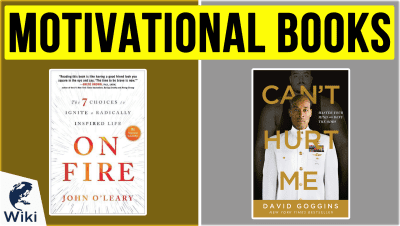10 Engaging & Informative Books About American History
You may think you know everything about American history, but you can always dive deeper into the life of a particular person or look at a historical event from a different perspective. The ten informative works listed here cover everything from Abraham Lincoln's career as a lawyer to the aftermath of the September 11th attack. This video was made with Ezvid Wikimaker.
10 Engaging & Informative Books About American History
5 Americans Who Changed History
- Claudette Colvin: Teenage civil rights activist
- Franklin Delano Roosevelt: Led the country out of the Great Depression
- Jane Addams: Nobel Peace Prize winner & suffragette
- Sojourner Truth: Abolitionist and women's rights activist
- Alexander Hamilton: Profoundly shaped America's financial system
The History of the American Revolution
In Depth
Though your experience learning history in school may have involved memorizing facts and dates, hopefully you now know that there are more than a few sharply opposing accounts of how the United States came to be. Whether you want to learn more about the founding fathers, understand the systemic issues of slavery, or simply get lost in stories of America's defining political conflicts, here, in no particular order, are some reads that will transport you to a time long gone by.
At #1, we find Karen Berkey Huntsberger's "I'll Be Seeing You." In the 1940s, America was getting ready to enter a war that would change the course of history. Lucy Berkey was just graduating college and preparing to enter the workforce when she found a position in Washington as a map artist for the Navy WAVES. In this collection of her letters home compiled by her niece, readers get a privileged view into the life of a young woman coming of age during a tumultuous, strangely freeing time for women in the U.S.
At #2 is "Unshackling America" by Willard Sterne Randall. We all know that 1776 is the year that America declared its independence. But what happened during the next few decades, after the smoke of the Revolutionary War had cleared? This detailed retelling of the War of 1812 provides insight into the years after the country declared itself free of British rule, before it became a formidable world power.
But what happened during the next few decades, after the smoke of the Revolutionary War had cleared?
At #3 we find "Custer's Trials" by T.J. Stiles. Who was General Custer? A military man dedicated to a new vision for America? An abolitionist who freed slaves but couldn't see them as equals? A failed Wall Street wolf with a complicated love life? The many sides of this famous man come into full view in this thoroughly-researched, modern take on a pivotal historical figure.
Coming in at #4 is David Hajdu's "Love for Sale," which examines history through the lens of popular music. From early W.C. Handy band beats to vaudeville earworms to the punks of CBGB, musicians from every era have a lot to tell us about this country. Hajdu examines more than a century of pop hits, using the context of music to shine a light on the socio-political realities of the day.
For #5 we have "The Long Shadow of 9/11" by Brian Michael Jenkins and John Paul Godges. This series of essays from two RAND authors goes beyond the simple details to examine the strengths and weaknesses of America's response to the September 11th attacks, exploring the unpleasant possibility of a lengthy war without a simple solution.
This series of essays from two RAND authors goes beyond the simple details to examine the strengths and weaknesses of America's response to the September 11th attacks, exploring the unpleasant possibility of a lengthy war without a simple solution.
At #6 we get Jay Parini's "Empire of Self." Iconoclast Gore Vidal was a media darling from the 1950s onward. As the author of countless books, plays, and razor-sharp essays about politics, literature, and American life, he was never afraid to speak his mind. In this sharply-observed biography, a more complex portrait of the writer and wit comes into view, from his early days as a political hopeful to his distinguished final years as one of America's finest essayists.
At #7 is "Lincoln's Last Trial" by Dan Abrams and David Fisher. Before Lincoln was a president, he practiced law for two decades, helping his clients argue their innocence in court. The case of Peachy Quinn Harrison was no exception, though it would be the self-taught lawyer's last hurrah before running for Presidential office. By going in-depth into Lincoln's last case, the authors paint a portrait of a man obsessed with justice at any cost.
At #8 is James D. Hornfischer's "The Fleet at Flood Tide." In 1944, America was on the verge of issuing an attack against the Axis powers that would usher in a new era of warfare. The attacks on the Japanese forces at sea would comprise a thrilling, terrifying series of events as the U.S. Navy prepared to risk everything to bring Tojo's forces to their knees.
In 1944, America was on the verge of issuing an attack against the Axis powers that would usher in a new era of warfare.
For #9, we find James W. Loewen's "Lies My Teacher Told Me About Christopher Columbus." Every kid is taught the simple rhyme about an explorer sailing the ocean blue. However, that's far from the full story of slaughter, colonialism, and captivity that goes along with Christopher Columbus's arrival in the New World. In this clear-eyed account, the true story is revealed in stunning detail.
Last but not least, at #10, is Karl Jacoby's "The Strange Career of William Ellis." Growing up on the border between Mexico and the United States during the Civil War might not sound like the most promising start for a young Black man. But William Ellis turned adversity into success through sheer force of will. By passing as a Mexican businessman, Ellis was able to create the life he wanted in the midst of an intolerant world.
















